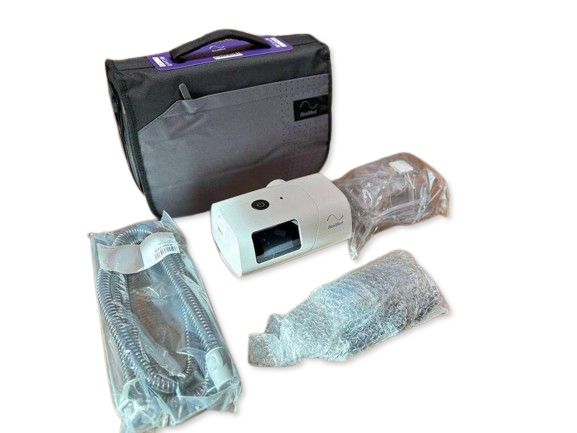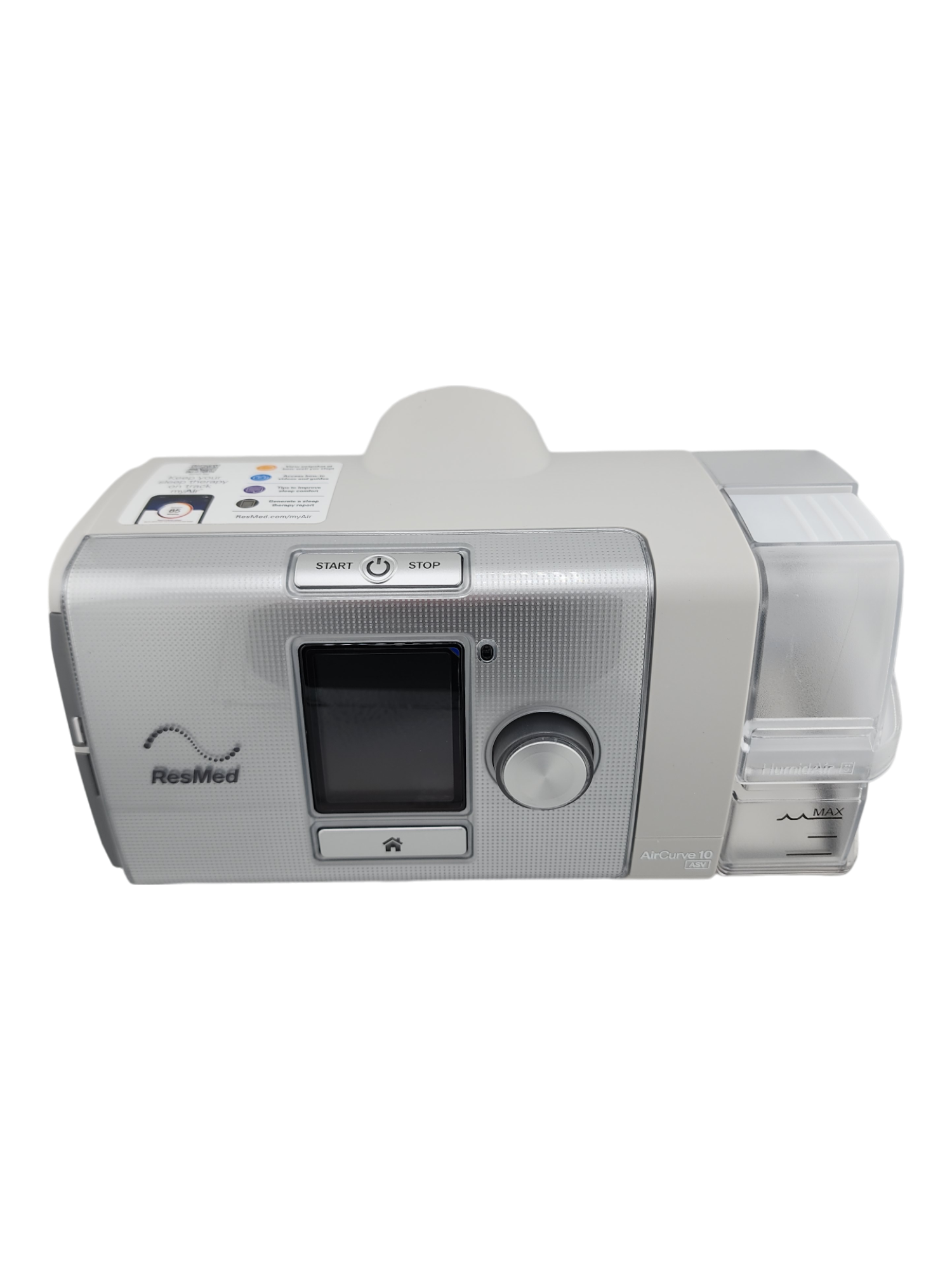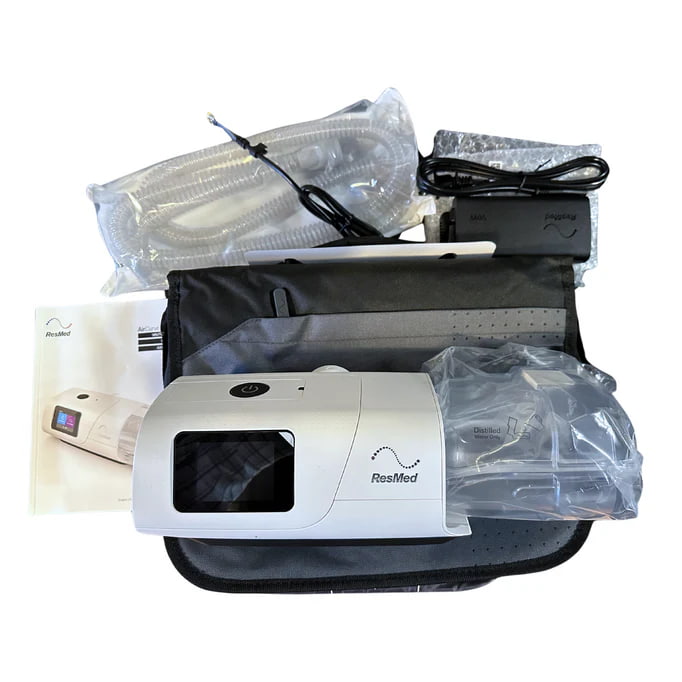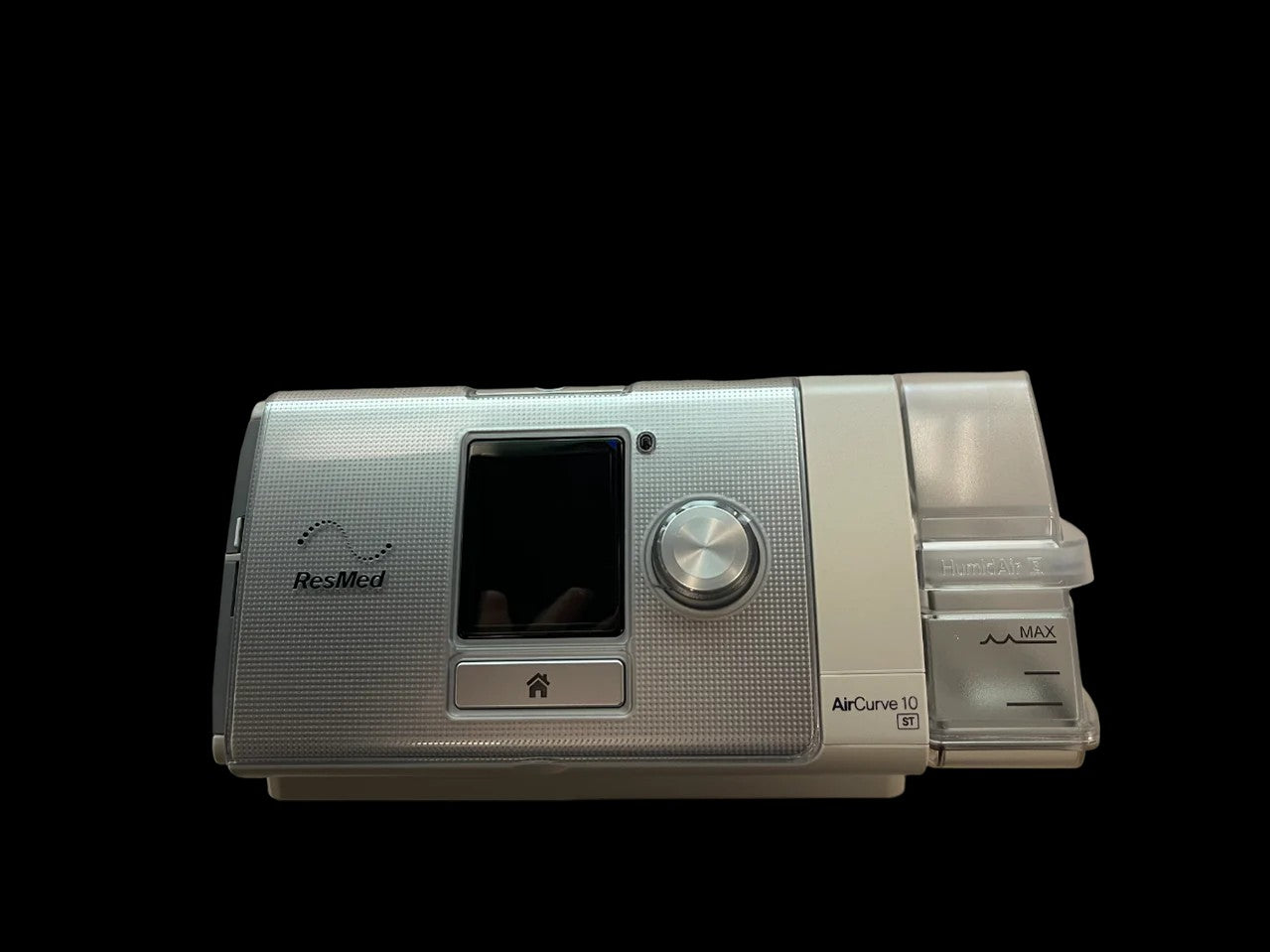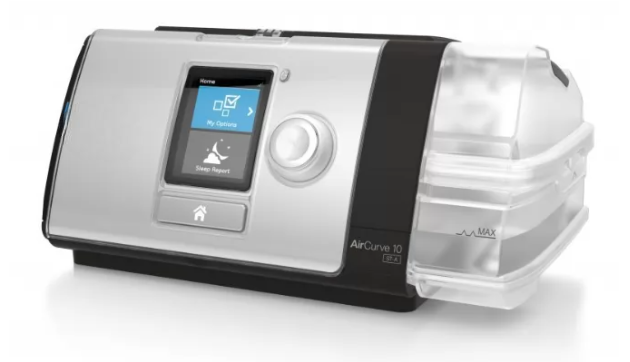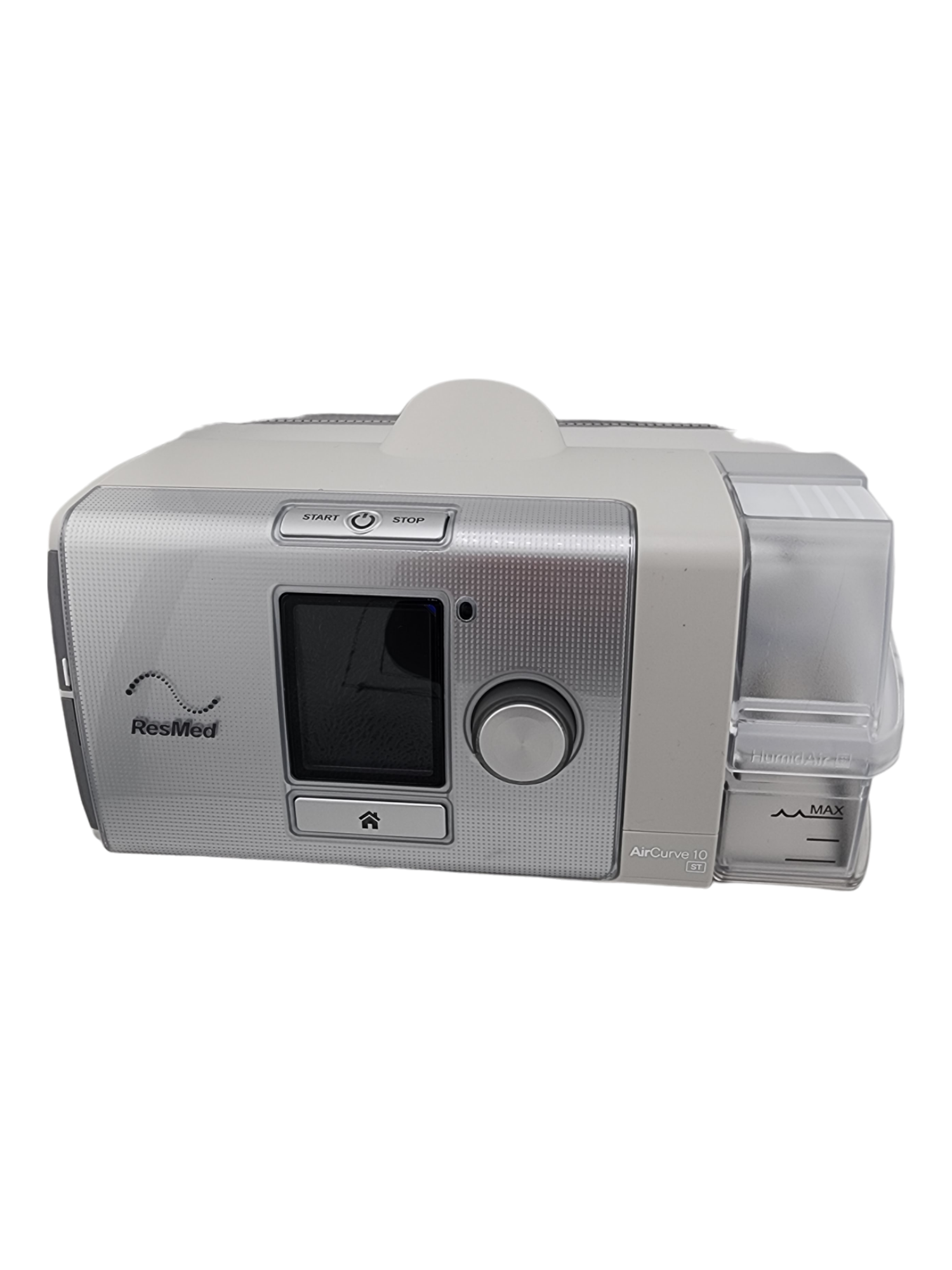BiPAP/VPAP ST, ST-A, and ASV Machines | Shop Now!
BiPAP/VPAP ST, ST-A, and ASV
Discover our comprehensive collection of BiPAP/VPAP ST, ST-A, and ASV CPAPs, offering advanced respiratory support tailored to individual needs. Our range includes a variety of bilevel and adaptive servo-ventilation devices designed to provide personalized therapy with adjustable pressure settings and advanced comfort features. Whether you require enhanced pressure support, precise algorithmic adjustments, or comprehensive data monitoring, our selection of BiPAP/VPAP ST,... Read More
BiPAP Machine / VPAP ST, ST-A, and ASV Machines
Our collection of BiPAP, VPAP, ST, ST-A, and ASV machines offers advanced solutions for individuals with various respiratory conditions, providing tailored support and improving sleep quality. These devices are designed to deliver superior comfort and precise pressure adjustments to meet your unique therapy needs.
BiPAP (Bilevel Positive Airway Pressure) machines stand out by delivering two distinct pressure levels: a higher pressure for inhalation (IPAP) and a lower pressure for exhalation (EPAP). This dual-pressure system reduces the effort needed to breathe, especially for those with more complex respiratory challenges. It's an ideal choice for patients with conditions like sleep apnea, Chronic Obstructive Pulmonary Disease (COPD), or neuromuscular disorders.
Similarly, VPAP machines function like BiPAP devices but often come with additional customizable pressure settings, making them a popular option for treating conditions like obstructive and central sleep apnea. ResMed products typically feature VPAP technology, providing variable pressure levels for enhanced comfort during both inhalation and exhalation.
For those needing more specific respiratory support, ST and ST-A machines offer spontaneous-timed (ST) functions, delivering additional breaths if your natural breathing falls below a set rate. This is particularly beneficial for patients with central sleep apnea or hypoventilation disorders. The ST-A machines provide even more advanced features like intelligent algorithms that adapt to breathing patterns in real-time, ensuring seamless therapy adjustments as needed.
Our ASV (Adaptive Servo-Ventilation) machines provide dynamic, real-time adjustments to your breathing patterns, making them especially effective for treating complex and central sleep apnea. These machines continuously monitor breathing and make subtle changes to pressure to stabilize irregular patterns, offering an unmatched level of personalization for those with fluctuating respiratory needs.
Comparison Table Between BiPAP, VPAP ST, ST-A, and ASV Machines
| Feature | BiPAP | VPAP ST | ST-A | ASV Machines |
|---|---|---|---|---|
| Primary Use | Treats OSA, CSA, COPD, and neuromuscular disorders | Treats CSA and hypoventilation disorders | Advanced respiratory support for CSA, OSA, and mixed apnea | Treats CSA, mixed apnea, and Cheyne-Stokes respiration |
| Pressure Levels | Dual (IPAP and EPAP) | Dual (IPAP and EPAP) with timed backup rate | Dual (IPAP and EPAP) with advanced adaptive support | Dual (IPAP and EPAP) with adaptive pressure support |
| Timed Backup Rate | No | Yes | Yes | No |
| Adaptive Algorithms | No | No | Yes (e.g., iVAPS) | Yes (adaptive to breathing patterns) |
| Example Models | ResMed AirCurve 10 VAuto, Philips Respironics DreamStation BiPAP | ResMed AirCurve 10 ST, Philips Respironics BiPAP S/T | ResMed AirCurve 10 ST-A with iVAPS | ResMed AirCurve 10 ASV, Philips Respironics DreamStation BiPAP AutoSV |
Key Features of BiPAP, VPAP ST, ST-A, and ASV Machines
1. Dual Pressure Levels
BiPAP and VPAP machines provide two pressure levels: IPAP and EPAP.
- Inhalation and Exhalation Support: Inhalation Pressure (IPAP): The higher pressure assists with inhalation and opens the airway.
- Exhalation Pressure (EPAP): The lower pressure setting during exhalation makes it easier to breathe out, reducing the effort required.
This dual-pressure system makes therapy more comfortable for patients, especially those with complex respiratory conditions.
2. Timed Backup Rate
ST and ST-A machines include a timed backup rate feature, which ensures the patient receives a minimum number of breaths per minute. This is crucial for patients with central sleep apnea, as it provides a safety net if spontaneous breathing stops.
3. Adaptive Algorithms
ASV machines use adaptive algorithms to continuously monitor and adjust pressure support based on the patient's breathing patterns. This real-time adaptation helps stabilize breathing and manage central and complex sleep apnea.
4. Advanced Data Tracking
Modern BiPAP, VPAP ST, ST-A, and ASV machines come with advanced data tracking capabilities, allowing healthcare providers to monitor therapy effectiveness and make necessary adjustments.
5. Humidification
Integrated or optional humidifiers provide moisture to prevent dryness and irritation in the airways, enhancing overall comfort.
Benefits of BiPAP, VPAP ST, ST-A, and ASV Machines
1. Enhanced Comfort
These machines make breathing more natural and less strenuous, improving patient comfort and therapy adherence.
2. Improved Breathing Support
They deliver customized pressure levels tailored to the patient’s needs, ensuring consistent respiratory assistance throughout the night.
3. Advanced Technology
ASV machines use advanced algorithms that adapt to the patient’s breathing patterns in real-time, improving therapy effectiveness.
4. Versatility
These machines can treat a wide range of respiratory conditions, including OSA, CSA, complex sleep apnea, and more.
How to Choose the Right Machine?
1. Consult with a Healthcare Provider
Before selecting a machine, consult with a healthcare provider to assess your specific needs and get a recommendation for the best device.
2. Consider Comfort Features
Look for machines with adjustable pressure settings, humidification, and user-friendly interfaces to enhance therapy comfort.
3. Check Compatibility
Ensure the machine is compatible with your existing CPAP mask and accessories.
4. Review Data Tracking Capabilities
Consider a machine with comprehensive data tracking and reporting features to monitor your therapy progress.
5. Evaluate Size and Portability
If you travel frequently, consider a portable, lightweight machine to maintain your therapy routine on the go.
These Machines Are Ideal For
BiPAP Machines
- Obstructive Sleep Apnea (OSA) patients
- Patients with Complex Sleep Apnea
- Individuals with COPD or Neuromuscular Disorders
VPAP ST Machines
- Central Sleep Apnea (CSA) patients
- Patients with Hypoventilation Disorders
- Patients requiring precise ventilatory support
VPAP ST-A Machines
- Patients with advanced respiratory conditions
- Patients with variable breathing needs
- Individuals needing high levels of customization
ASV Machines
- Central Sleep Apnea (CSA) patients
- Patients with Complex Sleep Apnea
- Patients with Cheyne-Stokes Respiration
- Individuals needing advanced adaptive support
General Maintenance Tips for BiPAP, VPAP ST, ST-A, and ASV Machines
Daily Maintenance
Clean the Mask
- Disassemble the mask and wash the parts with mild soap and warm water.
- Rinse thoroughly and air dry before reassembling.
Weekly Maintenance
Clean the Humidifier Chamber
- Wash the chamber with mild soap and warm water, rinse thoroughly, and air dry.
Monthly Maintenance
Inspect and Replace Filters
- Replace disposable filters every 30 days.
- Wash reusable filters and allow them to air dry completely before reinserting.
Quarterly Maintenance
Deep Clean the Humidifier Chamber
- Clean with a vinegar solution to remove mineral buildup.
- Rinse thoroughly to prevent inhaling vinegar fumes.
Popular Machines for Sale in Our Collection
ResMed AirCurve 10 VPAP ASV w/HumidAir Humidifier and ClimateLine Tubing
The ResMed AirCurve 10 VPAP ASV is an advanced adaptive servo-ventilation device designed to treat central sleep apnea (CSA), complex sleep apnea, and Cheyne-Stokes respiration. It features an integrated HumidAir humidifier and ClimateLine heated tubing, which provide optimal humidity and temperature levels, enhancing user comfort.
ResMed AirCurve 10 VPAP ASV w/HumidAir Humidifier and SlimLine Tubing
The ResMed AirCurve 10 VPAP ASV with HumidAir Humidifier and SlimLine Tubing is designed to treat central and complex sleep apnea. It offers the same advanced ASV technology as the ClimateLine model, ensuring a stable, comfortable sleep experience.
ResMed AirCurve 10 ST Bi-Level CPAP
The ResMed AirCurve 10 ST Bi-Level CPAP delivers spontaneous/timed (ST) bilevel therapy for individuals with central sleep apnea. It features an integrated HumidAir humidifier for comfortable and effective bi-level therapy.
FAQs
Our committed team is available to support you through every step of your treatment journey.



